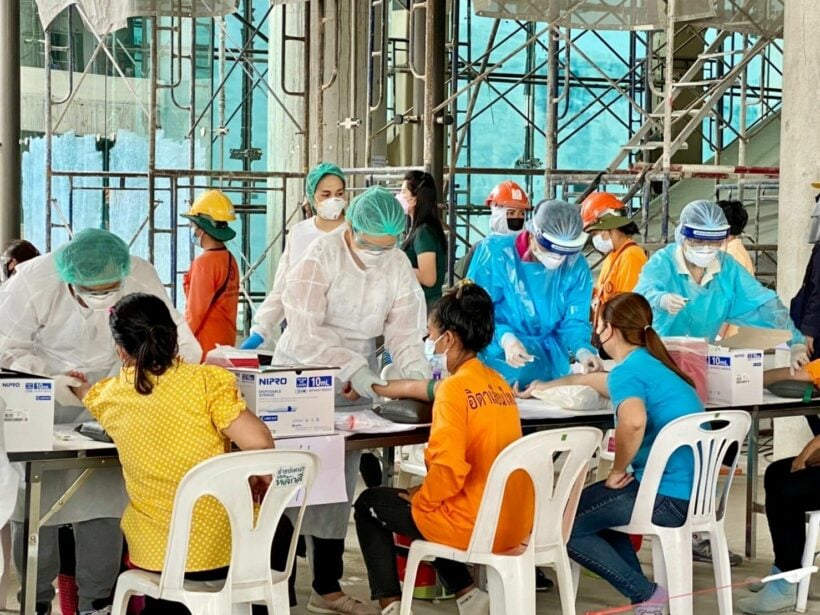“Bubble and seal” method to contain outbreaks at factories, keep business afloat

With a number of Covid-19 clusters at large factories, the Thai government has been working to contain the virus quickly and rollout of vaccinations to the workers to prevent a downfall in the industrial sector. One of the controversial methods of containing the virus is the so-called “bubble and seal” policy at factories where a cluster of infections has been reported, requiring all workers to stay inside the factory for nearly a month.
The latest wave of Covid-19, with cases first recorded on April 1 at Bangkok nightlife districts, has spread rapidly in prisons, construction camps and factories. More than 130 factories in 11 provinces have reported outbreaks with a total of more than 7,100 cases reported, although that’s just a small fraction of the around 63,000 factories in Thailand employing about 3.4 million people. With the tourism industry struggling to stay afloat due to the travel restrictions and disease control measures brought on by the pandemic, the export industry has been crucial.
To contain the Covid-19 outbreaks at factories, the Thai government has been using a so-called “bubble and seal” method. If 10% of the factory workers test positive for the virus, the entire factory staff are kept on the plant for 28 days while the infected workers are sent for treatment. Some field hospitals are set up inside factories. Thai health official Taweesap Siraprapasiri told Reuters reporters that the method allows business operations to continue.
“Those with symptoms will be sent for treatment, others will be in the bubble, if it spreads it will spread in there and not outside… This limits the outbreak and allows business to continue.”
At a number of the factories and construction camps with a Covid-19 outbreak, the workers, many who are migrants working for a low wage, have been forced to stay onsite, even those who are not infected with the virus. In Phetchaburi, hundreds of workers who were held at the Cal-Comp Electronics factory fled the building in protest after a power outage. Many complained of hot and crowded conditions. Some say they were served uncooked meat.
Migrant Workers Rights Network coordinator in Thailand, Suthasinee Kaewleklai, said it is not appropriate to require the workers who are not infected with the virus to stay inside the factory. Suthasinee says authorities need to be doing more tests and improve conditions at the workplaces to prevent future infections.
SOURCE: Reuters
Latest Thailand News
Follow The Thaiger on Google News:


























